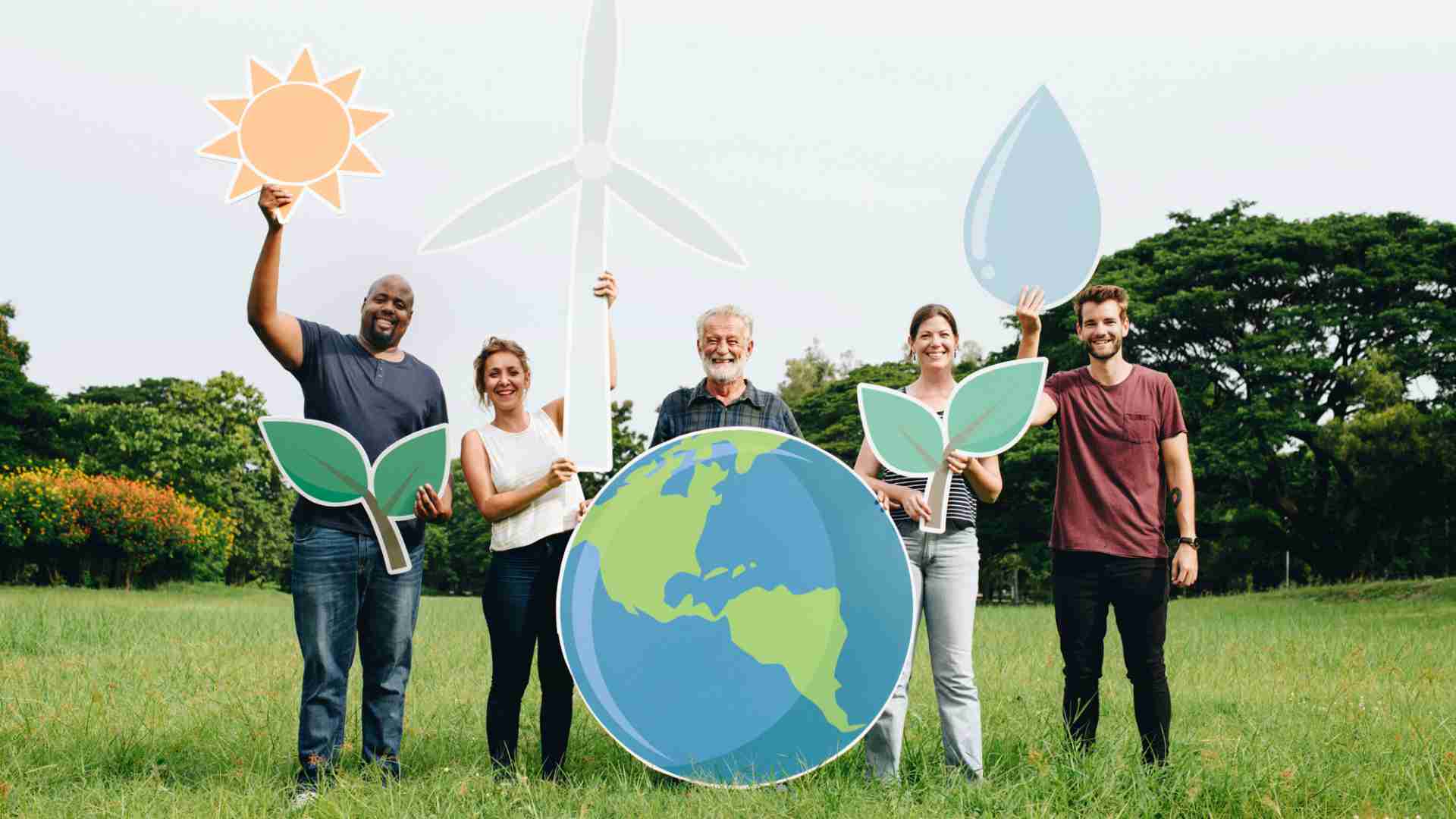
The energy sector is crucial for economic growth in Africa, providing abundant natural and non-renewable resources like solar, wind, hydro, oil, and gas. Despite challenges in investment and infrastructure, recent technological advancements and investment incentives have sparked increased interest in the sector. Efficient and sustainable energy infrastructure is essential for driving economic development, enhancing productivity, attracting investment, and fostering entrepreneurship. A robust energy sector underpins key industries like manufacturing, agriculture, and healthcare, creating employment opportunities and stimulating growth. Top investment opportunities include renewable energy projects, energy infrastructure development, oil and gas exploration, and mini-grid and off-grid solutions.
Investing in renewable energy sources in Africa offers significant opportunities for sustainable development and economic growth. Key renewables include solar power, wind energy, hydropower, and biomass energy. Solar power can be harnessed through solar farms and rooftop installations, while wind energy can be developed in coastal areas. Hydropower can be generated through large-scale hydroelectric projects, and biomass energy provides decentralized energy production and rural electrification.
Africa’s energy landscape is dominated by fossil fuels, including oil and gas. These fuels attract investment in exploration, production, and infrastructure development. These resources fuel domestic and industrial activities. Coal, a cost-effective and accessible energy source, is also used in African countries. However, environmental concerns about coal combustion are driving a shift towards cleaner alternatives.
Investing in energy infrastructure, including renewable and fossil fuel-based, is crucial for Africa’s economic development. This expansion of electricity access, industrialization, and employment opportunities empower socio-economically. Balancing fossil fuel exploitation with renewable energy minimizes environmental risks and promotes sustainability. Strategic investments unlock Africa’s economic potential, foster inclusive growth, and drive business opportunities and agricultural investment.
Africa’s energy landscape is diverse, with traditional biomass being the primary source. However, with economic development and technological advancements, Africa is shifting towards modern energy sources. Fossil fuels, particularly oil and natural gas, are the leading sources, with countries like Nigeria, Angola, and Algeria holding significant reserves. Renewable energy, such as solar, wind, hydro, and geothermal power, is also gaining traction. Countries like Morocco and South Africa have invested in solar projects to diversify their energy portfolios and promote sustainability. Rapid population growth, urbanization, and industrialization drive increased energy consumption, with economic development playing a crucial role. Addressing challenges in Africa presents business opportunities in infrastructure development and renewable energy projects. This benefits agricultural investments with reliable energy for irrigation, processing, and transportation.
Africa’s energy sector, dominated by major companies like Eskom, Sonelgaz, and Egbin Power Plc in South Africa, Nigeria, and Angola, is crucial for economic development. Reliable energy drives growth and improves living standards. Energy infrastructure investments attract investment, create jobs, and stimulate sectors. Rapid urbanization and industrialization in Africa create a growing demand for energy services across manufacturing, transportation, and telecommunications. Renewable energy solutions like solar-powered irrigation systems can enhance agricultural productivity and contribute to food security. Understanding the energy sector’s dynamics is crucial for assessing its impact on economic development and promoting agricultural investment in Africa.
Africa is experiencing a surge in renewable energy adoption due to its abundant natural resources, growing energy demand, and a focus on sustainability. Countries like Kenya, South Africa, Morocco, and Ethiopia have invested in renewable energy projects, such as the Lake Turkana Wind Power project. This has increased Kenya’s capacity. South Africa has also made strides in solar energy adoption through the Renewable Energy Independent Power Producer Procurement program. Morocco has successfully implemented projects like the Noor Solar Complex, reducing fossil fuel dependence. Ethiopia has also used hydroelectric resources to boost its renewable energy capacity. This trend demonstrates the continent’s potential for economic development and sustainable practices.
The energy sector in Africa is shaped by various stakeholders such as governments, private companies, international organizations, and local communities. Key players in this sector include multinational corporations investing in renewable energy projects. They also include governments implementing energy policies, development banks providing financing for energy infrastructure, and local communities engaging in renewable energy initiatives. These efforts collectively contribute to sustainable energy development and economic development in Africa. Understanding these stakeholders is crucial for a comprehensive understanding of the continent’s energy landscape.
Africa’s energy sector presents significant investment opportunities for economic growth, with investments in power plants, transmission lines, and renewable energy projects driving economic activity, creating jobs, and attracting foreign investment. Energy can also revolutionize agricultural practices, increasing productivity and efficiency. Investments in mechanized farming techniques, irrigation systems, and value-added processing facilities can boost agricultural output and create opportunities for agribusinesses and rural development. Despite Africa’s vast arable land and favorable climate, agricultural potential remains untapped. Strategic investments in energy and agriculture are crucial for Africa’s economic development.
Africa’s economic development presents numerous investment opportunities in energy and agriculture, contributing to sustainable growth. Agriculture is particularly lucrative due to its vast arable land, growing population, and food security demand. Advancements in technology and innovative farming techniques make it a lucrative investment avenue. Energy sector investments are crucial for meeting energy demands, driving industrialization, and fostering economic growth. Opportunities exist in renewable energy projects like solar, wind, and hydroelectric power, as well as traditional energy sources like oil and gas. Africa’s rich renewable resources, favorable government policies, and increasing private sector participation are expected to drive clean energy initiatives. This will position it as a key player in the global energy landscape.
1. What types of energy sources are most promising for investment in Africa?
Renewable energy sources like solar, wind, and hydro are the most promising for investment due to their abundance and sustainability.
2. What is the leading source of energy in Africa?
Fossil fuels, especially oil and gas, are the leading energy sources in Africa.
3. Who is the biggest energy supplier in Africa?
The biggest energy supplier in Africa varies by region, but some of the key players include companies like Eskom in South Africa and Sonatrach in Algeria.
4. Which African country has the most renewable energy?
South Africa is one of the African countries leading in renewable energy adoption, particularly wind and solar energy.
5. Who owns Africa Energy?
Ownership of Africa Energy is diverse and includes both public and private entities, as well as international stakeholders investing in the continent’s energy sector.

Impact investing isn’t just a moral checkbox in Africa anymore. It’s becoming a smart business. Investors who want financial return and meaningful social or environmental change are seeing that Africa offers some of the richest ground for both. Why Africa Now? So yes, there’s lot of investment opportunities in Africa. The risk is there, policy, […]

Social enterprises are basically businesses built to solve real problems while still making money. They don’t choose between profit and impact, they try to deliver both. And across Africa, they’re changing how investors think about returns, growth, and long-term value. Investment in Africa is shifting. It’s no longer just about oil, infrastructure, or extractive projects. […]

Africa’s trade agreements are basically the rules that decide how goods, services, and investments move across the continent. They shape who can trade with whom, how much tax businesses pay at borders, and how quickly products can move from one country to another. For investors, these agreements aren’t just paperwork, they determine market access, cost […]